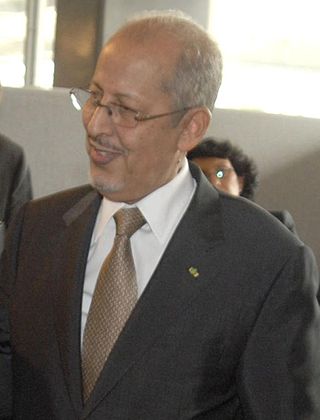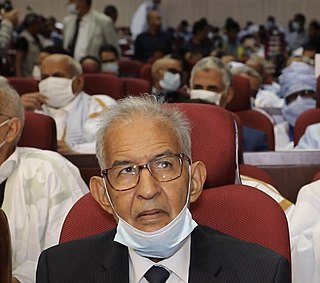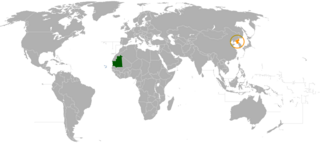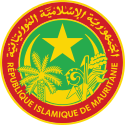The original inhabitants of Mauritania were the Bafour, presumably a Mande ethnic group, connected to the contemporary Arabized minor social group of Imraguen ("fishermen") on the Atlantic coast.

Mauritania is a presidential democracy, but has suffered from repeated military coups since its independence in November 1960. For 18 years after independence, Mauritania was a one-party state under Moktar Ould Daddah. This was followed by decades of military rule. The first fully democratic presidential election in Mauritania occurred on 11 March 2007, which marked a transfer from military to civilian rule following the military coup in 2005. The election was won by Sidi Ould Cheikh Abdallahi, who was ousted by another military coup in 2008 and replaced by general Mohamed Ould Abdel Aziz. Mauretania underwent its first peaceful transition of power after the 2019 presidential election, although this was between two presidents of the ruling UPR party and former army generals.

Moktar Ould Daddah was a Mauritanian politician who led the country after it gained its independence from France. Daddah served as the country's first Prime Minister from 1957 to 1961 and as its first President of Mauritania, a position he held from 1960 until he was deposed in a military coup d'etat in 1978.

Elections in Mauritania encompass four different types: presidential elections, parliamentary elections, regional elections and local elections.

The Rally of Democratic Forces, or Assembly of Democratic Forces, is a political party in Mauritania. It is led by Ahmed Ould Daddah.

The Union of the Forces of Progress is a centre-left to left-wing political party in Mauritania.

Presidential elections were held in Mauritania on 11 March 2007. As no candidate received a majority of the votes, a second round was held on 25 March between the top two candidates, Sidi Ould Cheikh Abdallahi and Ahmed Ould Daddah. Abdallahi won the second round with about 53% of the vote and took office in April.

Parliamentary elections were held in Mauritania on 19 November 2006, with a second round on 3 December. At least 28 political parties competed for seats in the National Assembly, the lower house of Parliament. Islamist parties were banned, but many Islamists ran as independent candidates. 95 seats in the National Assembly were at stake in the election, along with over 200 local councils.

Ahmed Ould Daddah is a Mauritanian economist and a politician. He is a half-brother of Moktar Ould Daddah, the first President of Mauritania, and belongs to the Marabout Ouled Birri tribe. He is currently the President of the Rally of Democratic Forces (RFD) and was designated as the official Leader of the opposition following the 2007 presidential election, in which he placed second.

Mauritania, officially the Islamic Republic of Mauritania, is an Arab Maghreb country in West Africa. It is bordered by the Atlantic Ocean in the west, by Morocco in the north, by Algeria in the northeast, by Mali in the east and southeast, and by Senegal in the southwest. It is named after the ancient Berber Kingdom of Mauretania, which later became a province of the Roman Empire, even though the modern Mauritania covers a territory far to the south of the old Berber kingdom that had no relation with it.

Presidential elections were held in Mauritania on 18 July 2009. Mohamed Ould Abdel Aziz, who led the 2008 coup d'état, won a narrow first-round majority in the election, according to official results. A second round, if necessary, would have been held on 1 August 2009.

Parliamentary elections were held in Mauritania on 17 May 1959. The result was a victory for the Mauritanian Regroupment Party, which was the only party to contest the elections, thereby winning all 40 seats in the National Assembly. Voter turnout was 90.3%.

Presidential elections were held for the first time in Mauritania on 20 August 1961 to elect the President for the next five years. Moktar Ould Daddah, who had been acting head of state since independence from France in 1960 was the only candidate, and was elected unopposed. Although he was a member of the ruling Mauritanian Regroupment Party, his candidacy was also supported by the Mauritanian National Union. Voter turnout was 94%.

Presidential elections were held in Mauritania on 7 August 1966. Following the merger of all the country's political parties into the Mauritanian People's Party (PPM), the country had become a one-party state in December 1961. Its leader, incumbent President Moktar Ould Daddah, was the only candidate, and was re-elected unopposed. Voter turnout was 96%.

Presidential elections were held in Mauritania on 8 August 1976, alongside a parliamentary by-election for the new seven seats representing Tiris El Gharbiya, the Mauritanian-occupied area of Western Sahara. At the time, the country was a one-party state with the Mauritanian People's Party (PPM) as the sole legal party. Its leader, incumbent President Moktar Ould Daddah, was the only candidate and was re-elected unopposed. Voter turnout was 97.9%. They were the last elections held until the restoration of multi-party democracy in 1992.

The National Vanguard Party, is an illegal political party in Mauritania. It is the Mauritanian regional branch of the Iraqi-led Arab Socialist Ba'ath Party.
Mauritanian National Renaissance Party was an Arab nationalist political party in Mauritania from 1958 to 1961. It was led by Ahmed Baba Miské.

Mauritania–North Korea relations refers to the current and historical relationship between the Islamic Republic of Mauritania and the Democratic People's Republic of Korea (DPRK), commonly known as North Korea. Neither country maintains an embassy in their respective capitals.
Aïssata Touré Kane was a Mauritanian politician who was the country's first female government minister. After holding leadership positions in the youth wing and women's section of the Mauritanian People's Party, she served in the cabinet of President Moktar Ould Daddah from 1975 to 1978. Her time as a Minister ended when Daddah's Government was overthrown by a military coup.












